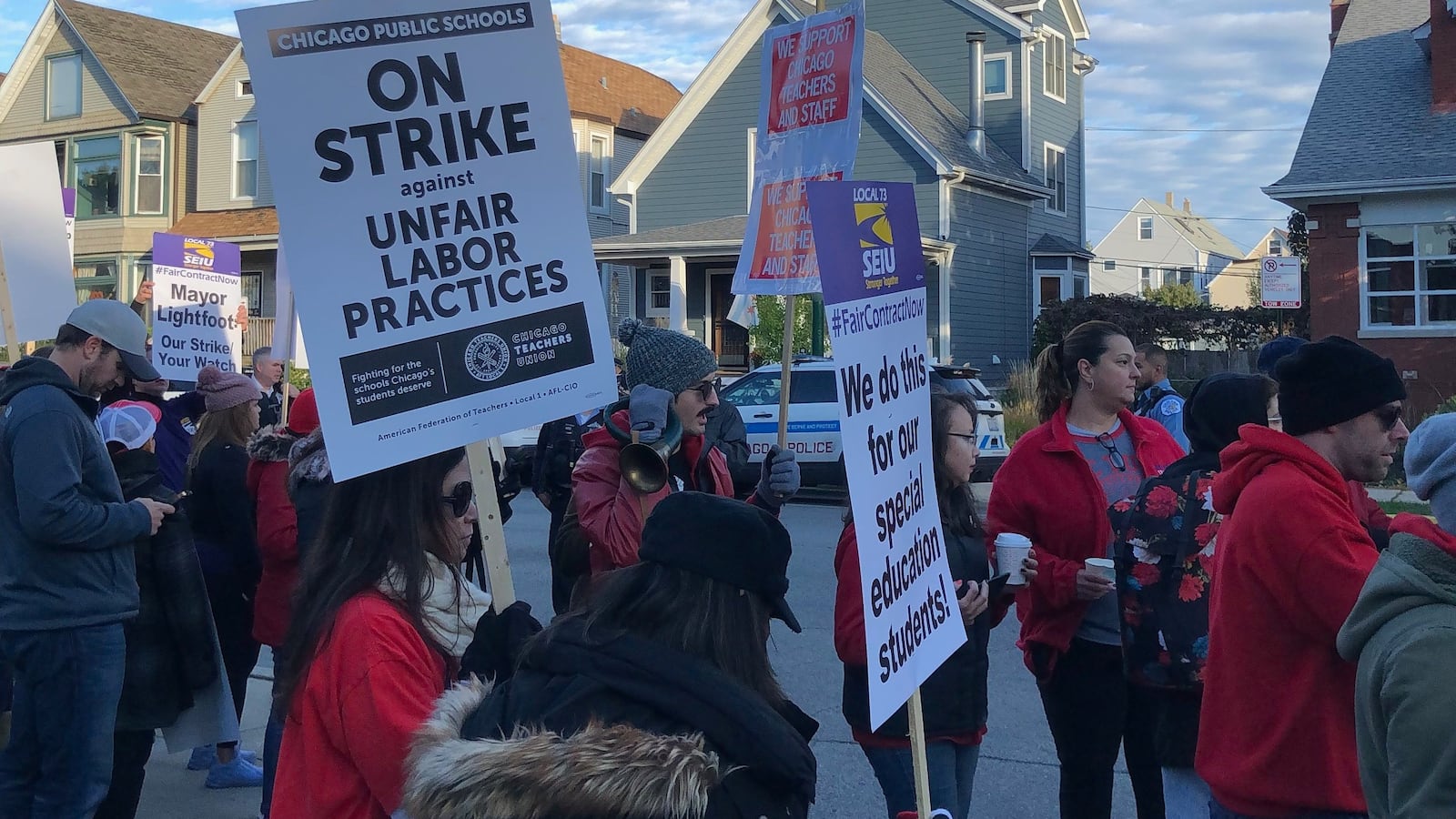When Chicago Teachers Union and City Hall negotiators resumed bargaining Thursday, they did so behind closed doors. If the union gets its way, that could change.
The unusual request to open contract bargaining sessions to the public hasn’t drawn much attention amid a focus on teacher pay, class size, and staffing in Chicago schools, and it appears unlikely to be the union’s deciding factor about whether to call off its strike.
But a look at another recent teacher strike, in Denver, reveals why open bargaining makes sense as a union demand, and how it might change the course of negotiations going forward.
In most places, contentious contract talks unfold the way they currently do in Chicago. As tension escalates, strike dates are set, and teachers walk out, union leaders and city officials release dueling reports from closed-door bargaining sessions, leaving observers — including teachers whose compensation is being decided — to make sense of developments through union and district spin and reporters’ analysis.
But in Colorado, voters approved a ballot initiative in 2014 that broke open those doors and made bargaining sessions public. Teachers unions opposed the ballot initiative, arguing that decisions about whether to open up bargaining should be made locally.
Union officials also knew that the initiative had been advanced by the conservative Independence Institute. “Transparency is good for everyone,” Jon Caldara, the libertarian think tank’s president, told Chalkbeat in 2014. “If this is such an advantage for the unions, why are they against it?”
But after the initiative passed — with 70% of the vote — unions have been the prime beneficiaries. They have been able to use their broad membership to turn once-buttoned-up negotiations into freewheeling rallies that galvanize public opinion in favor of workers.
Before and during last year’s Denver teachers strike, union members packed the rooms where talks were taking place, responding audibly to the conversation as it unfolded. They booed if they heard something they didn’t like, snapped if they heard something they did, and shouted out their opinions throughout.
When the union bargaining team entered the negotiating room, the crowd would go wild, giving negotiators a standing ovation and launching into a familiar cheers: “If they won’t pay us, shut it down!”
Colorado union officials say the open-door talks were key to sustaining public support in strikes throughout the state.
“In the last couple of years we have seen more and more people paying attention and coming and engaging” around union negotiations, said Amie Baca-Oehlert, vice president of the Colorado Education Association. “We want to be open and transparent with the community and public, having that open bargaining allows for those conversations to take place.”
The starting point in Chicago is complex. The union agreed to closed-door bargaining in August when it signed onto rules governing the current contract negotiations. And it has not released its bargaining documents publicly, while Lightfoot, who campaigned on a pledge to bring transparency to city government, has published two contract offers in full. (Under her leadership, the city has begun livestreaming school board meetings that previously had been accessible only to limited numbers of people who signed up in advance.)
Neither the union nor City Hall would provide additional comment for this story.
What would happen if Lightfoot agreed to the union’s request, besides thrusting the city into mostly uncharted territory?
“It’s hard to know how open bargaining would affect negotiations,” said Bradley Marianno, who teaches education policy and leadership at the University of Nevada, Las Vegas, “because it’s not commonly done.”
Melanie Asmar contributed reporting.

